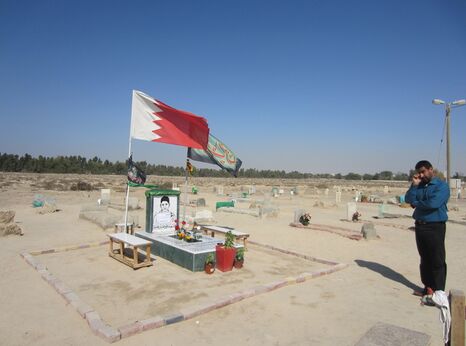Four Bahraini minors tried as adults

In February 2020, Husain Abdulrasool Salman Abdulla Husain’s family received a phone call for his father to accompany Husain Abdulrasool Salman Abdulla Husain to the Criminal Investigations Directorate (CID). Father and son attended the CID building where Husain was interrogated alone without a lawyer and without his father present in the room. Husain Abdulrasool Salman Abdulla Husain was informed of the charges against him and made to sign a document and told that he would be kept under surveillance before being released. His father was simultaneously and separately questioned about his son and while waiting for Husain, he heard the investigators screaming at his son to confess. Husain Abdulrasool Salman Abdulla Husain later told his family that he had also been slapped in the face.
On 30 November 2020, Husain Abdulrasool Salman Abdulla Husain was summoned again to the CID which he attended with his father and was detained. During his interrogation without a lawyer he admitted his involvement in burning tires and handling Molotov cocktails on 14 February 2020 as well as that of three other boys. The case was referred to the prosecution unit for terrorism crimes, who officially charged him under Articles 277 (1), 277(bis), 277(1 bis) and 277 (2 bis) of the Penal Code with premeditated arson; fabricating with other unknown persons Molotov cocktails with the aim of using them and endangering life and property; possessing and obtained Molotov cocktails with the aim of using them and endangering life and property; and using Molotov cocktails with the aim of using them and endangering life and property on 14 February 2020 in Karrana, a village north west of the capital Manama. He was also charged under Articles 178 and 179 of “participating with others in an illegal gathering of more than five people, in order to disturb public security by way of violence”. The case was referred to Branch Four of the High Criminal Court. The referral document named the four boys and stated that three of them, Sayed Hasan Ameen Jawad Abdulla, Faris Husain Habib Ahmed Salman, and Mohammed Jaafar Jasim Ali Abdulla were on the run.
Sayed Hasan Ameen suffers from sickle-cell disease and reduced heart function. He was twice hospitalized in October and November 2020. During the first hospitalization he spent a week in the Pediatric Intensive Care Unit at Salmaniya Medical Complex including for vaso-occlusive crisis due to sickle-cell disease, muscular seizure, and encephalopathy.
On 14 February 2021, the King ratified Law No 4 of 2021 on the promulgation of the Corrective Justice Law for Children and their Protection from Ill-Treatment. The new law will consider anyone who committed an offence when under the age of 18 to be a child and as such would be tried by Juveniles Courts.
At present, under the 1976 Bahraini Juvenile Law, a juvenile is someone not exceeding 15 years of age. As such, Bahrain is in breach of its obligations under the Convention on the Rights of the Child (CRC), to which it is a party.
Article 37 of the CRC states that: States Parties shall ensure that: (d) Every child deprived of his or her liberty shall have the right to prompt access to legal and other appropriate assistance, as well as the right to challenge the legality of the deprivation of his or her liberty before a court or other competent, independent and impartial authority, and to a prompt decision on any such action. Furthermore, Article 40 also states: 2(a) No child shall be alleged as, be accused of, or recognized as having infringed the penal law by reason of acts or omissions that were not prohibited by national or international law at the time they were committed; 2(b)(ii) To be informed promptly and directly of the charges against him or her, and, if appropriate, through his or her parents or legal guardians, and to have legal or other appropriate assistance in the preparation and presentation of his or her defence and 2 (b)(iv) Not to be compelled to give testimony or to confess guilt; to examine or have examined adverse witnesses and to obtain the participation and examination of witnesses on his or her behalf under conditions of equality.